NSW government accused of defends controversial workers compensation reform
Unions representing tens of thousands of workers across one state are fighting reform to workers compensation one likened to a “dark-alley backstabbing”.
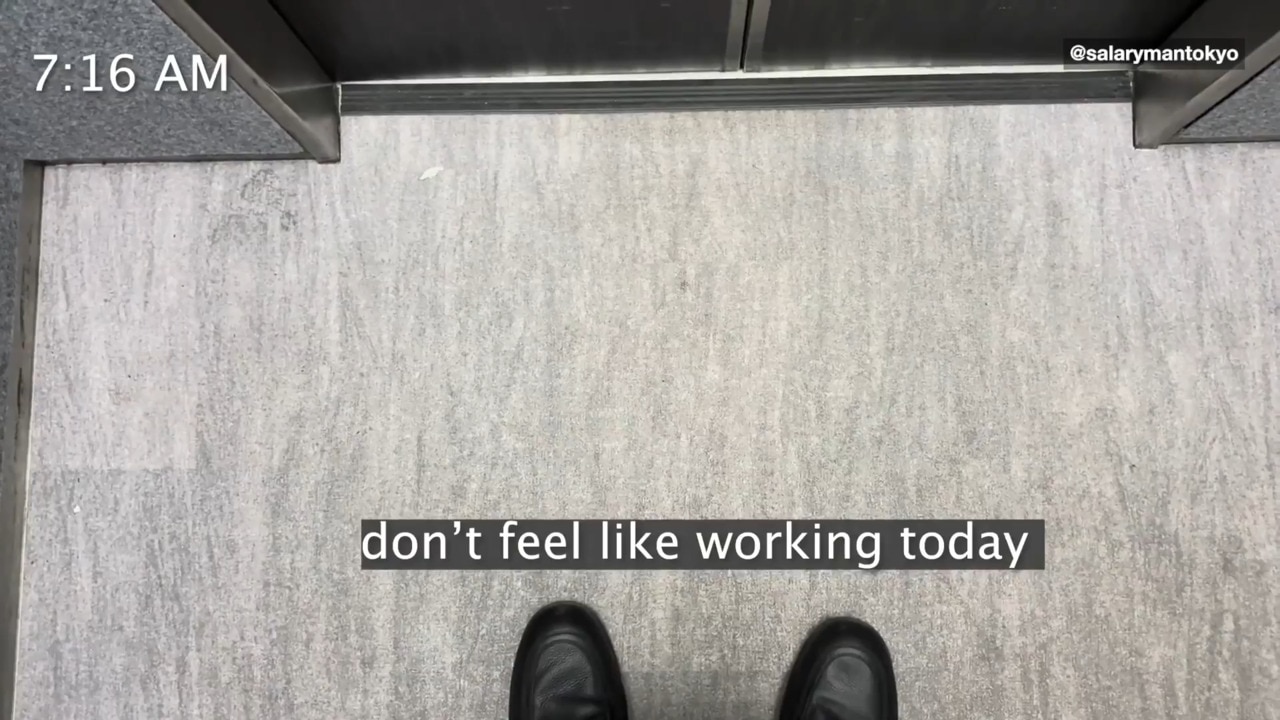
At Work
Don't miss out on the headlines from At Work. Followed categories will be added to My News.
Unions representing tens of thousands of workers from schools, hospitals, and industry in NSW have lashed out at controversial plans to reform workers compensation in the state, likening one provision to a “dark-alley backstabbing”.
A parliamentary inquiry into the proposed reforms will hear from a range of government, union, and business leaders on Friday morning, including the NSW Teachers Federation, the NSW Bar Association, and Unions NSW.
The state government claims the proposed changes, which have not been finalised, will make the system more sustainable, though Treasurer Daniel Moohkey nocked back claims the reforms were solely about the bottom line.
Unions NSW secretary Mark Morey, who gave evidence on Friday, said 95 per cent of workers with a permanent impairment from a psychological injury would not receive compensation due to the proposed 31 per cent threshold.
The new threshold for damages is part of a raft of proposed changes to overhaul the system and tighten claims for psychological injury, including requiring sufferers of racial, sexual harassment or bullying to obtain a court finding first.
Questioned by the panel, which includes independent, Labor, and Liberal MLCs, Mr Morey said he was surprised after working with the government to see the proposed reforms, which he said were driven by financial considerations.
“What this government is doing in NSW is shifting the problem from being a NSW government problem to a federal government problem, to push people onto the federal health system, to push people onto the welfare system and not deal with the fundamental problem, which is ‘this system isn’t working and the system needs to be changed’,” Mr Morey said.
Of particular concern for the unions were definitional provisions.
Under the plan, for a person who suffered sexual or racial harassment or bullying in the workplace to receive damages they would have to receive a court finding, and would also have to seek out a psychological diagnosis at their own cost.
“The injury also has to be of significant behavioural, cognitive or psychological dysfunction,” Unions NSW industrial officer Natasha Flores said.
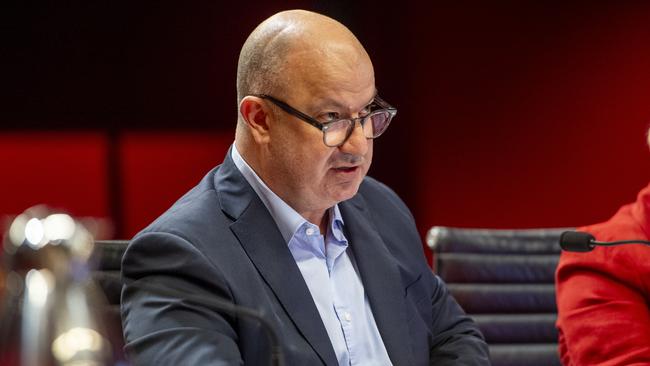
“So, this is suggesting that before you even get through the door to get a diagnosis, you have to be extremely impaired.
“Someone who’s at the beginning of breaking, for lack of a better word, is not included in this bill.”
Ms Flores said, in doing so, the reforms would delay treatment.
Representatives from NSW Teachers Association, NSW Nurses and Midwives Association, Australian Services Union NSW and ACT, Australian Workers Union NSW, and Public Service Association of NSW all gave evidence to the tribunal.
Many voiced fears about whether their members, including firefighters and retail staff, would be covered by the definition in the reforms, referencing examples such as a firefighter arriving after a car crash or a National Park worker after a suicide.
Others, claimed workers arriving after notable recent events such as the Bondi Westfield stabbing attack and the Hunter valley bush crash would not be captured within the definition of a relevant event under the proposed reforms.
Australian Workers’ Union NSW organiser Jack Ayoub described members being given first responder status only to not be included in the definition under the reforms of a psychologically injuring event as a “sort of dark alley backstabbing”.
“That has the moral integrity of a King’s Cross rubbish bin,” he said.
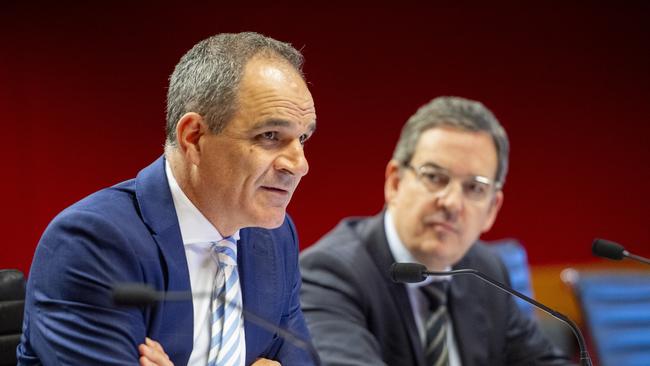
Under the planned reforms, a relevant event includes being subjected to violence or a threat of violence, indictable criminal conduct, witnessing an event leading to death or serious injury, or a threat of death or serious injury.
The tone was marginally more optimistic from the state’s business leaders.
Business NSW chief executive Daniel Hunter agreed that the current system was “broken”.
“It’s broken because it is not sustainable for the private sector workers compensation scheme, the nominal insurer’s current premiums are already rising by 8 per cent each year, while the funding ratio falls by about 5 per cent per year,” he said.
“On dollar terms, the scheme went backwards by $1.8bn last year, all while premiums went up by more than double CPI.
“To bring the scheme funding ratio back to what is considered a healthy level of 110 per cent – it’s currently, I believe, as of this morning – at 82 per cent would require huge premium increases under the settings of the current system.”
If nothing is done, Mr Hunter warned “then the scheme costs will send some businesses bankrupt”.
“There is also a human cost to this. The pressure and stress it places on business owners struggling to survive.
“NSW has a once in a generation opportunity to reform the workers compensation system and ensure that genuinely injured workers get the help they need, and that businesses can survive and ensure a safe workplace for their employees without significant changes, the weight of the scheme will crush businesses, leaving workers and the communities they served as good.”
Asked if he thought the proposal was the right one to fix the problem, Mr Hunter said: “In short, Rome is burning”.
Treasurer’s line in the sand
NSW Treasurer Daniel Moohkey has used the draft to draw a line in the sand over payments to the Treasury Managed Fund, the government’s self-insurer, telling the committee he would not authorise further cash injections.
That is, not until parliament authorises legal reforms.
While described by former One Nation MLC Mark Latham as “ballsy” in the “approach of threatening the parliament”, the statement also drew questions about whether the reform was about prevention or the fiscal “bottom line”.
Liberal MLC Damien Tudehope, who traded blows with both Mr Moohkey and Industrial Relations Minister Sophie Cotsis, asked the Treasurer: “Is that your belief that this solves a financial problem, or does it solve workers getting injured?”
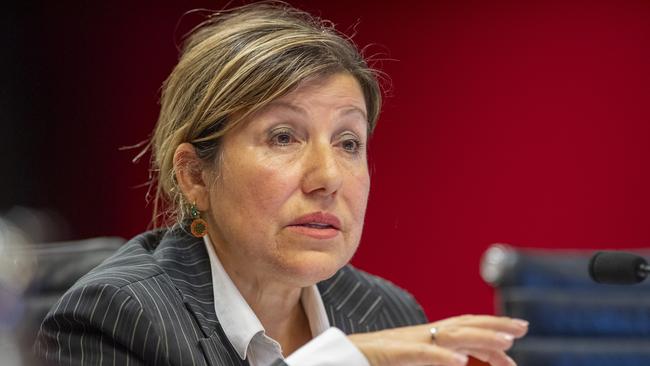
Mr Mookhey’s answer of “both” drew more questions about the “bottom line”.
He said the state government had borrowed $6.1bn since 2018 so the TMF’s assets equalled its liabilities - money he claimed was “coming at the expense of schools, hospitals or kids in need of out-of-home care”.
Mr Mookhey said the current compensation system was not equipped to handle more complex psychological issues, and that the time for prevention to make meaningful fiscal change had passed.
“We accept the fact that these are hard changes,” he said.
“I’m here to say to the parliament - doing nothing is not an option.
“Doing nothing is to lock in a system we know is failing. Doing nothing is to condemn even more workers to a system that’s not succeeding, and to ask businesses to pay more and more, knowing full well that those resources are not being well expended.
“The broader change that NSW needs to make is to break this set-and-forget mentality, which means that we ignore these problems for 10 years ... and then we have to change it rapidly”.
Mr Moohkey said no reform would run the risk of the entire system collapsing.
Earlier, Ms Cotsis told the committee in her opening address that there was “no doubt mental health is a societal issue”.
“But, the increase in psychological claims would indicate that the system has become a place where industrial relations and general health issues are being managed through a system that was designed to support those injured at work, to recover, and to return to work.”
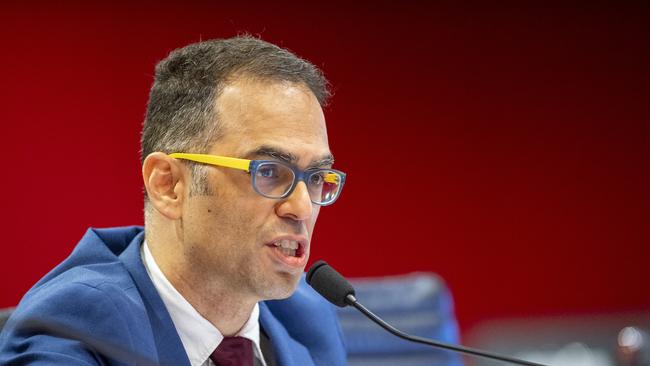
The inquiry was told claims for psychological injury had doubled in just six years, 91 per cent of physical injury claims resolved within 13 weeks, while 50 per cent of psychological claims were not resolved after a year.
Ms Cotsis said there were 3068 NSW public sector workers on workers compensation claims awaiting returning to work.
“Now this is unacceptable because these public sector workers have capacity to work, but the system has these artificial barriers that doesn’t allow them to get back into the system,” she told the inquiry.
Treasurer Daniel Mookhey told the hearing the upcoming state budget would report a $2.6bn writedown arising from the Treasury Managed Fund, the government’s self-insurer.
“As the TMF continues to deteriorate, the pressure for cash injections grows,” Mr Mookhey said.
“Since I became treasurer, the government has authorised an additional $1.2bn in cash injections to keep the public insurer fully funded.”
Since 2018, the state government has borrowed $6.1bn so that the TMF’s assets equalled its liabilities.
“I will not be authorising any further injections,” Mr Mookhey said.
“Not until parliament decides its collective response to a scheme that most acknowledge is failing.
“Not when that money is coming at the expense of schools, hospitals or kids in need of out-of-home care.
“That choice is clear for me.”
Opponents of the changes have accused the government of attempting to rush through the amendments, with the Law Society of NSW calling for a “pause” so that broader consultation and key changes to legislation can be enacted.
President Jennifer Bell said on Thursday that while the system was under pressure and in need of reform, the 31 per cent threshold would exclude “nearly all workers with psychological injury” from being able to make a claim.
More to come
Originally published as NSW government accused of defends controversial workers compensation reform


